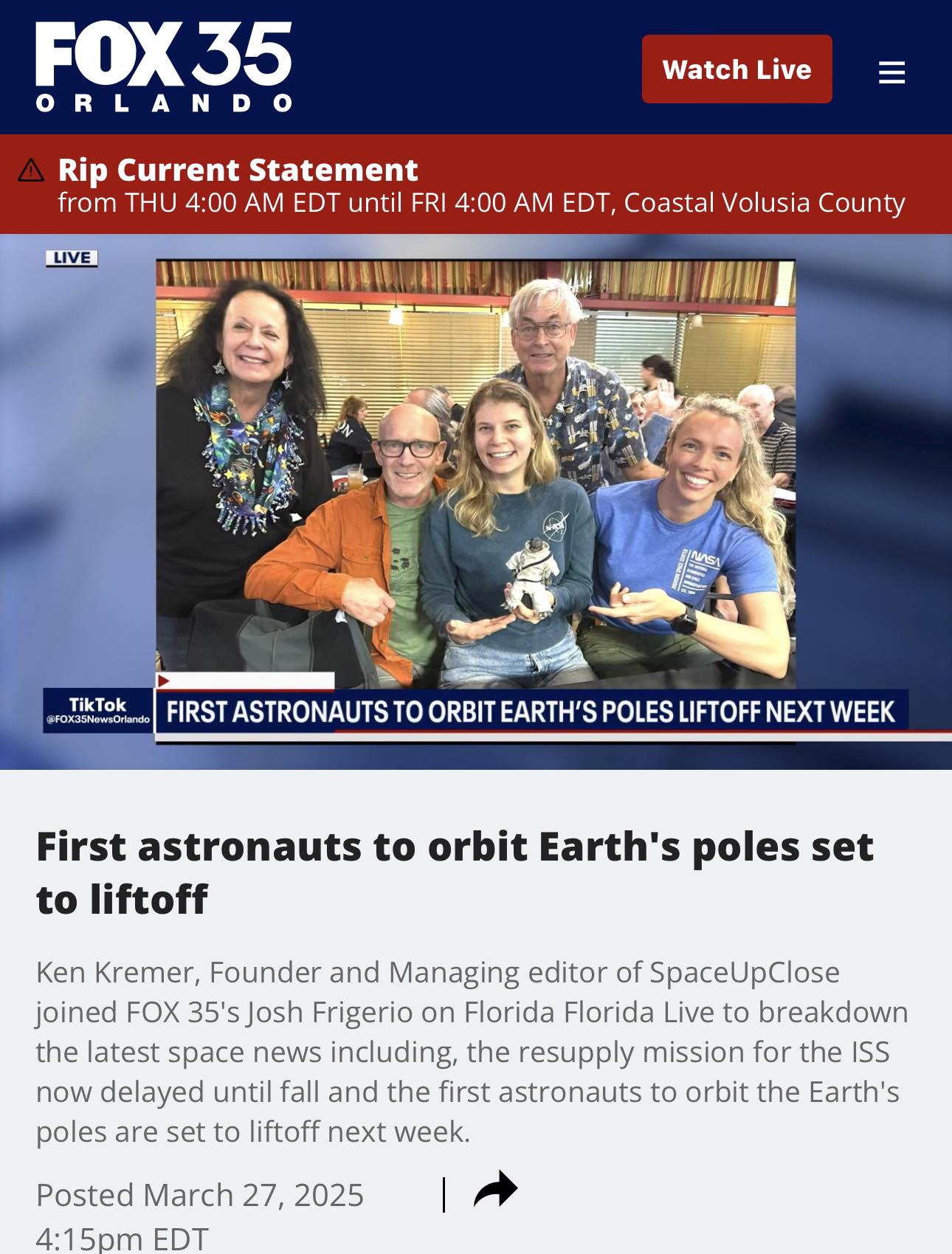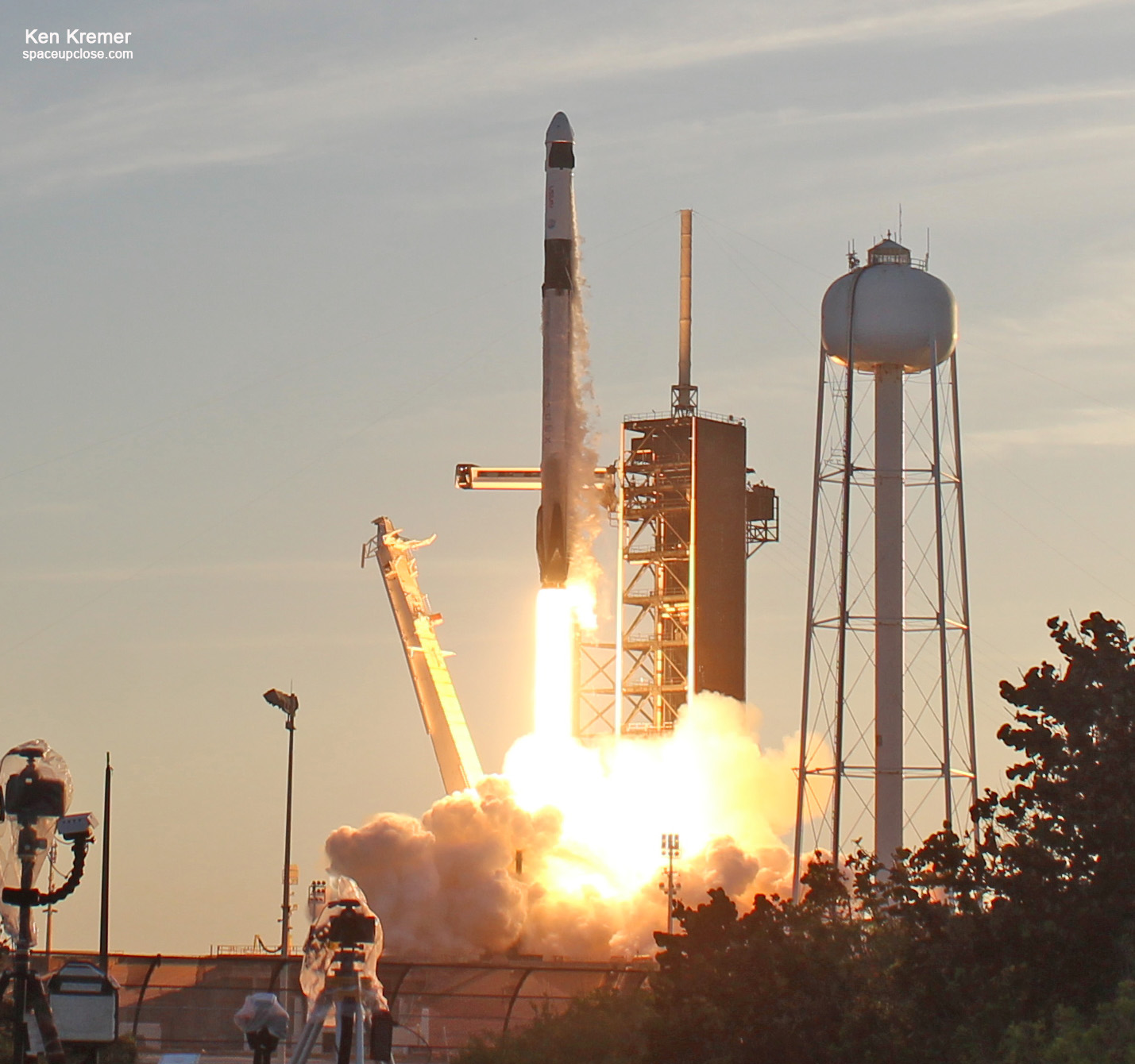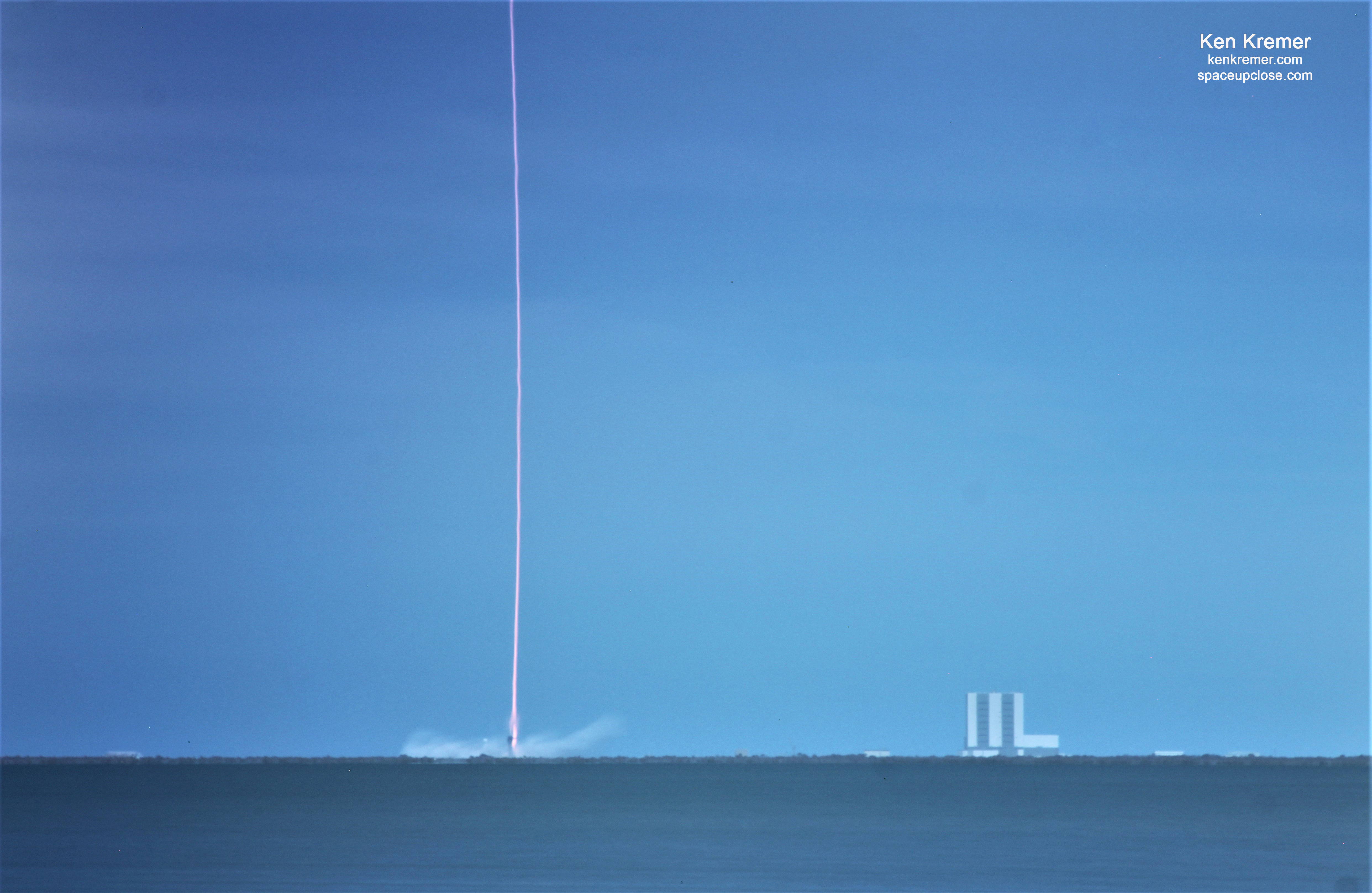
For SpaceUpClose.com & RocketSTEM
KENNEDY SPACE CENTER, FL – A four time recycled SpaceX Falcon 9 rocket streaked to orbit Wednesday afternoon on a stunning launch from the Florida Space Coast successfully carrying the next batch of 60 Starlink broadband satellites to orbit and thereby expanding the constellation to over 400 – and then landing the first stage on an ocean going droneship minutes later for a fifth launch one day.
The beautiful launch came amidst the ongoing coronavirus pandemic that has forced closures of public places, schools and travel hubs all across the US and the world – but not forced a rocket cancellation for this mission.
Picture perfect liftoff of the 7th Starlink commercial mission took place today, Wednesday at 3:31 EDT, (1930:30 GMT), April 22 from seaside Launch Complex-39A (LC-39A) on NASA’s Kennedy Space Center, FL.
Notably this launch took place from the same pad that will be used to restore US Human Spaceflight when a pair of veteran NASA astronauts blastoff in about 5 weeks seate3d inside a SpaceX Crew Dragon spaceship atop a brand new Falcon 9 rocket.
The Falcon 9 flawlessly roared off pad 39A on 1.7 million pounds of liftoff thrust and the successful payload delivery enlarged the Starlink constellation to some 420 flat-panel satellites.
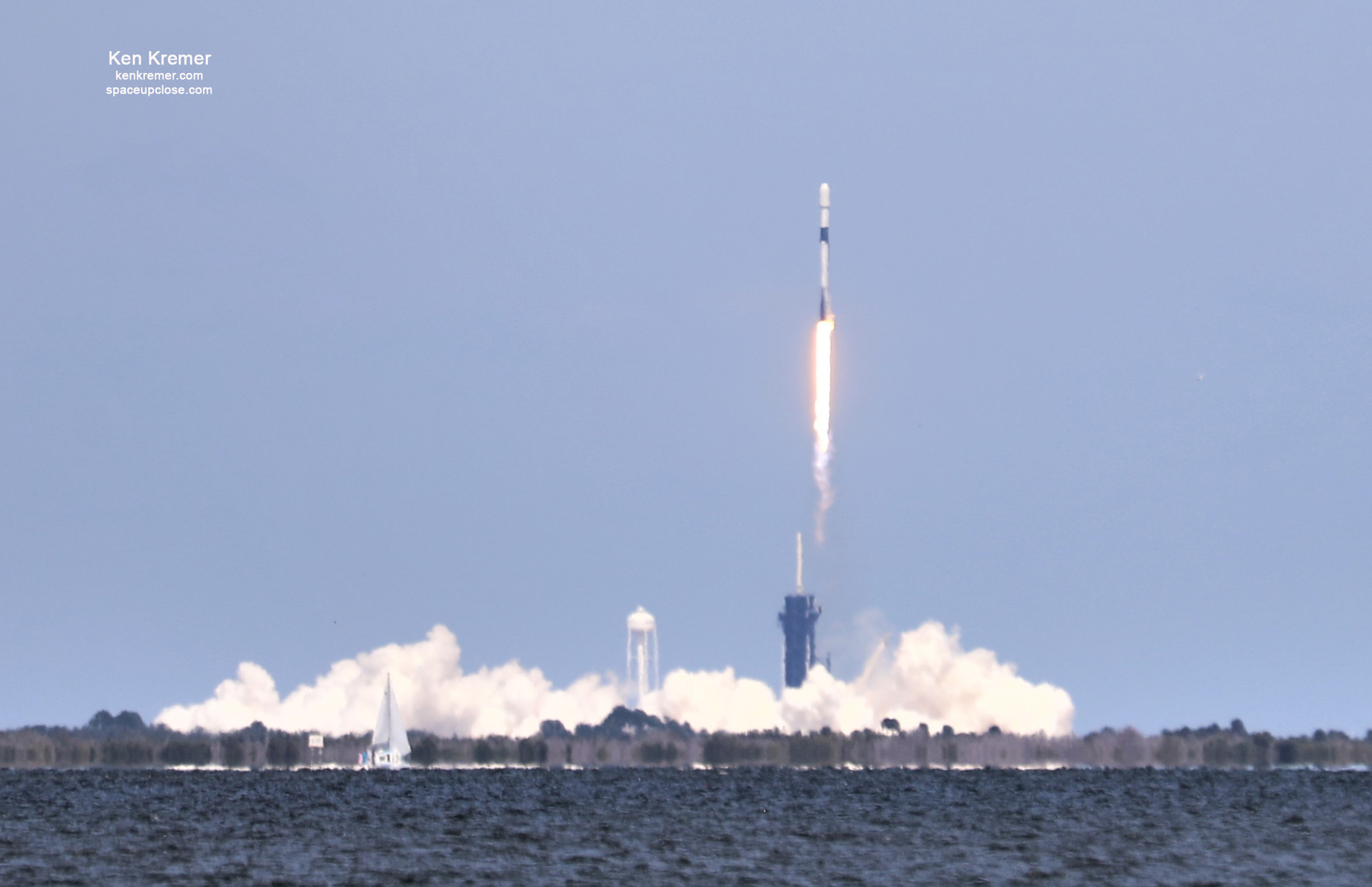
Enjoy our Up Close eyewitness photos of the Falcon 9 Starlink mission launch taken on site at the KSC Press Site and Titusville by Jean Wright and Ken Kremer as well as up close pad 39A photos and our earlier static fire test photos.
This recycled Falcon 9 first stage B1051 launched for the fourth time with recycled payload fairings as well.
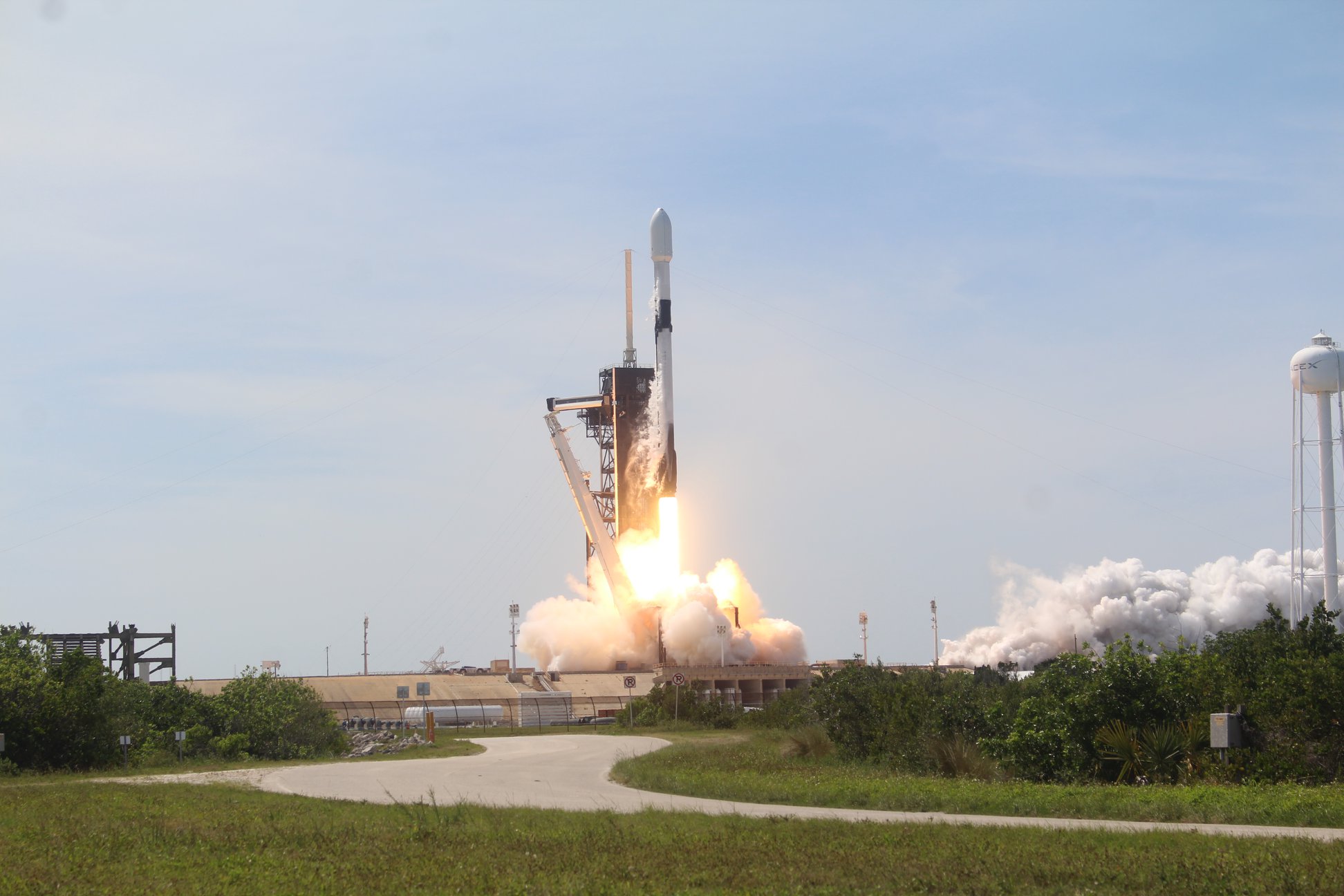
Eight minutes after liftoff the first stage successfully made a pinpoint soft landing on the ‘Of Course I Still Love You’ droneship station some 400 mi (640 km) north east of KSC
The SpaceX naval fleet also attempted to recover the recycled payload fairing halves.
This 4x recycled first stage counts as being the 2nd Starlink launch from pad 39A.
The payload comprises the seventh batch of 60 SpaceX built and owned Starlink broadband satellites launching to LEO with an overall mass of about 7.7 tons.
The Falcon 9 was previously used to launch Crew Dragon’s first flight to the ISS, launch of the RADARSAT Constellation Mission, and the fourth Starlink mission in Jan 2020.
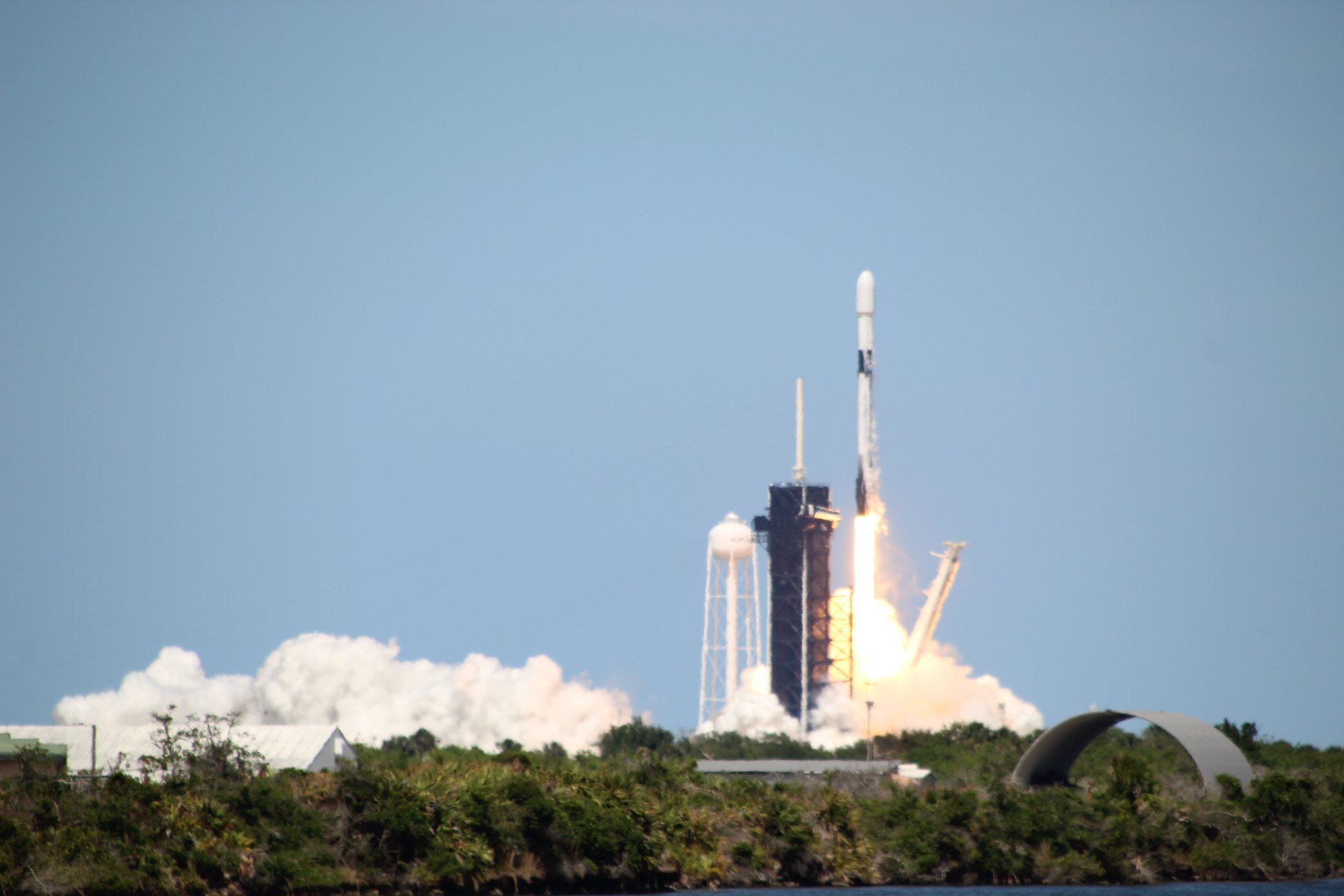
The Falcon 9 was previously used to launch Crew Dragon’s first flight to the ISS, launch of the RADARSAT Constellation Mission, and the fourth Starlink mission in Jan 2020.
The recycled payload fairings were previously used for the Israeli AMOS-17 mission launched and recovered in August 2019.
One fairing was caught mid-air by the fairing recovery ship as it descended on a parachute. The other was scooped out of the water.
SpaceX CEO Elon Musk says the fairing halves cost about $6 Million to produce new.
The two stage Falcon 9 rocket stands 229 feet (70 meters) tall.
SpaceX CEO Elon Musk has made rocket recycling a top priority in order to slash launch costs.
Musk says that the fairings cost approximately $6 million or roughly 10% of the approximate cost of $60 million for a new Falcon 9 rocket.
The Starlink satellites were successfully deployed starting approximately 15 minutes after launch into an elliptical low Earth orbit starting about 200 km altitude and then raised to their operating orbit of about 550 km with on board krypton ion thrusters.
Successful deployment of 60 Starlink satellites confirmed pic.twitter.com/h3e6QmKRue
— SpaceX (@SpaceX) April 22, 2020
SpaceX is currently the owner of the largest fleet of Earth orbiting satellites – already numbering 360 Starlink satellites delivered to orbit earlier – and now 420 following today/s successful deployment of 60 more after all went well.
My SpaceX Starlink static fire photos were featured at WKMG CBS 6 TV News Orlando on Apr 17:
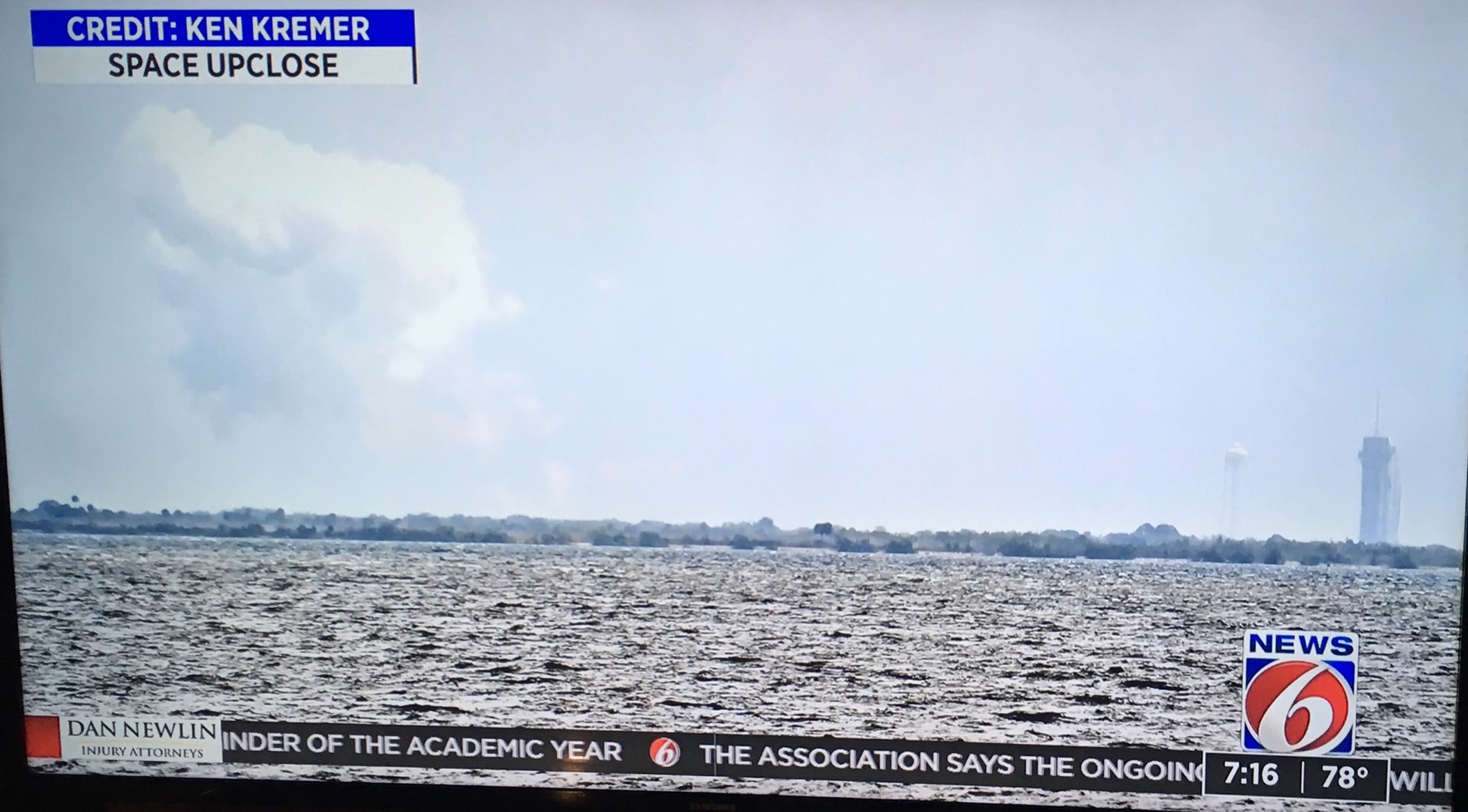
Watch Space UpClose continuing reports about onsite for live reporting of upcoming and recent ULA and SpaceX launches including Starlink, Solar Orbiter, In-Flight Abort, Mars 2020 and more at the Kennedy Space Center and Cape Canaveral Air Force Station.
Watch Ken’s continuing reports about onsite for live reporting of upcoming and recent SpaceX and ULA launches including Starlink, Solar Orbiter, In-Flight Abort, Mars 2020 and more at the Kennedy Space Center and Cape Canaveral Air Force Station.
Stay tuned here for Ken’s continuing Earth and Planetary science and human spaceflight news: www.kenkremer.com –www.spaceupclose.com – twitter @ken_kremer – email: ken at kenkremer.com
Dr. Kremer is a research scientist and journalist based in the KSC area, active in outreach and interviewed regularly on TV and radio about space topics.
………….
Ken’s photos are for sale and he is available for lectures and outreach events



